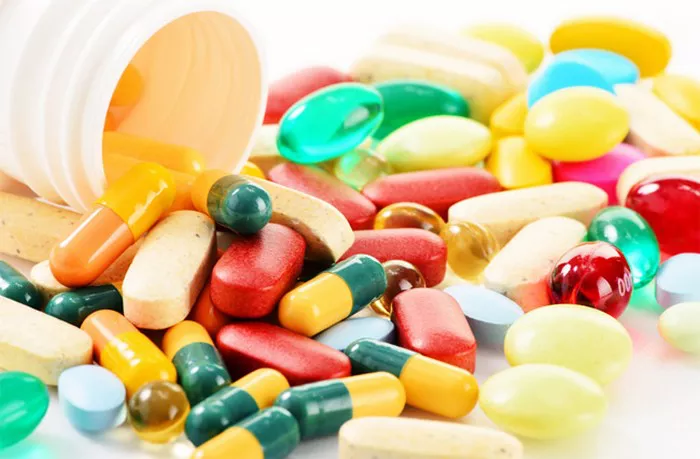Testosterone is a hormone that plays a crucial role in various aspects of male health, including muscle mass, bone density, libido, and mood regulation. While testosterone levels naturally decline with age, certain vitamins and minerals may help support healthy testosterone production. In this comprehensive guide, we’ll explore the importance of testosterone, evidence-based information on vitamins and minerals that may influence testosterone levels, additional nutrients and lifestyle factors to consider, and the importance of consulting with a healthcare professional before taking any supplements.
Explanation of Testosterone and Its Importance
Testosterone is a hormone produced primarily in the testes in men and in smaller amounts in the ovaries and adrenal glands in women. It is often referred to as the “male hormone,” although it also plays important roles in women’s health. Testosterone is responsible for:
Muscle Growth and Strength: Testosterone promotes muscle protein synthesis and contributes to muscle growth and strength.
Bone Health: Testosterone helps maintain bone density and may reduce the risk of osteoporosis and bone fractures.
Libido and Sexual Function: Testosterone plays a key role in libido (sex drive) and erectile function in men.
Mood Regulation: Testosterone levels may influence mood, energy levels, and overall sense of well-being.
Evidence-Based Information on Vitamins and Minerals Influencing Testosterone Levels
Several vitamins and minerals have been studied for their potential effects on testosterone levels. While research findings are mixed, some evidence suggests that the following nutrients may play a role in testosterone production:
Vitamin D: Adequate vitamin D levels are essential for overall health and may also support healthy testosterone levels. Research has shown a correlation between vitamin D deficiency and low testosterone levels. Foods rich in vitamin D include fatty fish (such as salmon and mackerel), fortified dairy products, and sunlight exposure.
Zinc: Zinc is an essential mineral involved in numerous biological processes, including testosterone production. Research suggests that zinc supplementation may help increase testosterone levels in individuals with zinc deficiency. Good dietary sources of zinc include oysters, red meat, poultry, nuts, and seeds.
Magnesium: Magnesium is another essential mineral that plays a role in testosterone production. Studies have shown that magnesium supplementation may lead to modest increases in testosterone levels, particularly in individuals with magnesium deficiency. Magnesium-rich foods include leafy green vegetables, nuts, seeds, and whole grains.
Additional Nutrients and Lifestyle Factors to Consider
In addition to vitamins and minerals, several other nutrients and lifestyle factors may influence testosterone levels:
Vitamin B6: Vitamin B6 is involved in testosterone synthesis and may help support healthy testosterone levels. Foods rich in vitamin B6 include poultry, fish, bananas, and fortified cereals.
Healthy Fats: Healthy fats, such as those found in avocados, olive oil, nuts, and seeds, are important for hormone production, including testosterone. Including adequate amounts of healthy fats in the diet may help support optimal testosterone levels.
Exercise: Regular physical activity, particularly resistance training (such as weightlifting), has been shown to increase testosterone levels. Incorporating strength training exercises into your workout routine may help promote healthy testosterone production.
Stress Management: Chronic stress can negatively impact hormone levels, including testosterone. Practicing stress-reduction techniques such as mindfulness meditation, deep breathing exercises, or yoga may help support hormonal balance.
Sleep: Quality sleep is essential for overall health and hormone regulation, including testosterone production. Aim for 7-9 hours of restful sleep per night to support optimal testosterone levels.
Importance of a Holistic Approach to Health and Hormonal Balance
While vitamins and minerals play a role in testosterone production, it’s important to emphasize that no single nutrient or supplement can guarantee increased testosterone levels. Optimal hormonal balance is influenced by various factors, including diet, exercise, stress management, sleep quality, and overall lifestyle habits.
Taking a holistic approach to health, which includes maintaining a balanced diet, staying physically active, managing stress, prioritizing sleep, and avoiding harmful behaviors such as smoking and excessive alcohol consumption, is essential for supporting overall well-being and hormonal balance.
Strong Recommendation to Consult with a Healthcare Professional
Before starting any new supplement regimen, including vitamins and minerals aimed at increasing testosterone levels, it’s crucial to consult with a healthcare professional, such as a physician or registered dietitian. A healthcare provider can assess your individual health status, review your medical history, and provide personalized recommendations based on your specific needs and circumstances.
Additionally, healthcare professionals can help identify and address any underlying medical conditions that may be contributing to low testosterone levels, such as hypogonadism, obesity, diabetes, or thyroid disorders.
Potential Risks of Excessive Supplementation and Underlying Medical Conditions
While vitamins and minerals are essential for health, excessive supplementation can pose risks and may lead to adverse effects. Overconsumption of certain nutrients, such as vitamin D or zinc, can cause toxicity and other health problems. It’s important to follow recommended dosage guidelines and avoid taking excessively high doses of supplements without medical supervision.
Furthermore, individuals with underlying medical conditions, such as kidney disease, liver disease, or hormonal disorders, should exercise caution when taking supplements that may affect hormone levels. Consulting with a healthcare professional is especially important for individuals with pre-existing health conditions to ensure safe and appropriate supplementation.
Conclusion: Supporting Testosterone Levels Through Nutrition and Lifestyle
In conclusion, optimizing testosterone levels involves more than just taking vitamins and minerals. While certain nutrients, such as vitamin D, zinc, and magnesium, may play a role in testosterone production, a holistic approach to health that includes a balanced diet, regular exercise, stress management, adequate sleep, and avoidance of harmful behaviors is essential for supporting hormonal balance and overall well-being.
Before starting any new supplement regimen, it’s important to consult with a healthcare professional to assess your individual health needs and ensure safe and appropriate supplementation. By prioritizing a healthy lifestyle and seeking guidance from healthcare providers, individuals can support optimal testosterone levels and promote long-term health and vitality.
[inline_related_posts title=”You Might Be Interested In” title_align=”left” style=”list” number=”6″ align=”none” ids=”6856,6853,6784″ by=”categories” orderby=”rand” order=”DESC” hide_thumb=”no” thumb_right=”no” views=”no” date=”yes” grid_columns=”2″ post_type=”” tax=””]






























